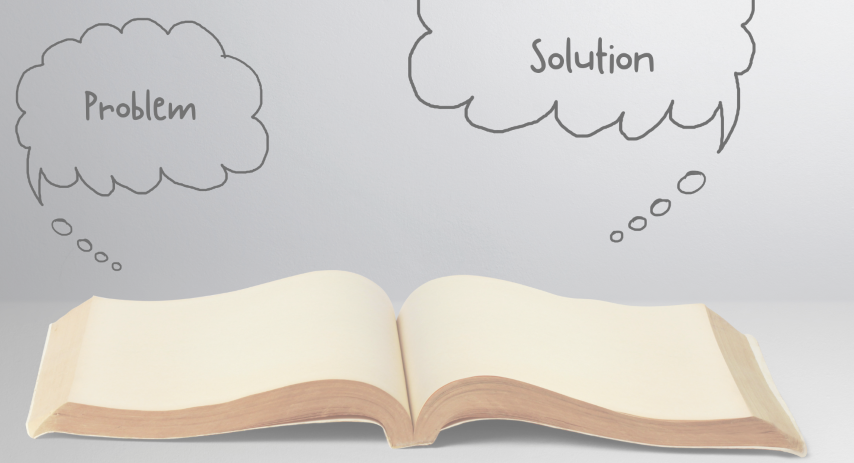
How To Make Sense of Narcissists in Crazy Making Relationships

How To Make Sense of Narcissists in Crazy Making Relationships
Narcissists Make Up 6% of the Population
If you find yourself in a crazy-making relationship, you may be dealing with a ‘Nars’. Your Nars could be a spouse, lover, parent, child, boss, neighbour, friend, sibling or co-worker.
Empaths and Narcissists exist on opposite ends of the compassion scale. According to the Dalai Lama, compassion is the wish for another being to be free from suffering.
Destroyed and Destroyer – Like a Moth to a Flame
Empaths have so much compassion, they lose themselves in the suffering of others. Narcissists have so little compassion, they gain energy through the suffering of others. Destroyed and destroyer. They attract one another like a moth to the flame.
Years have passed since I stood at the altar and unknowingly married a Narcissist. 20 years of marriage and many years of hard won insight bring me to now; Stronger, Wounded, Wiser.
I learned from my time with a narcissist. All without losing the very best part of me – my compassionate nature.
Healing the Wounded Healer
Our world doesn’t need another wounded healer. We need evolved beings. A relationship with a Narcissist scars at a soul level. But tissue grows over the wound. You do heal, and you can evolve.
This post is the script for a short lived podcast. I abandoned it because I wasn’t yet in a good enough place to share. I was the wounded healer. Since then, I’ve developed forgiveness, compassion and love for myself and other. Now it’s time to share what I’ve learned.
If you’ve been wounded in a crazy making relationship with a Narcissist, you can emerge stronger and wiser. You can become the Healed Healer. Your scar tissue will protect you from further harm. It will also remind you of the reality of life on planet Earth.
The Struggle Between Dark and Light
Both the Empath and the Narcissist are characters who are indicative of the times we live in. Both are growing in number. Between them, they seem to personify the struggle between dark and light.
In the world of the ‘Selfie’, many speak of being narcissistic as if it is a badge of honour. But this self-absorption may be nothing more than the development of a healthy level of self-esteem. There are selfish behaviours which may seem narcissistic, but they don’t cause pain to others. That’s the benign end of the spectrum.
At the other end are callous behaviours which destroy lives. NPD or Narcissistic Personality Disorder is harmful. It’s nothing to be proud of. Narcissists prey on people. Their prey of choice – Empaths.
Empaths also exist on a spectrum. The good news for them. It’s possible to learn skills so they can be protected from harm.
The prognosis for the Narcissist doesn’t seem so rosy at present. WHY? Because they don’t see their behaviour as hurtful, so they don’t tend to seek help.
The Innate Skills of Each Opponent
The Narcissist possesses innate skill. He/she knows how to manipulate. Their survival depends on it.
The Empath possesses innate skill. It’s otherworldly. There’s the capacity for great will, great compassion and great love.
Both read energy fields, in an often unconscious way.
- Narcissists can sense a compassionate nature.
- Empaths can sense and absorb suffering; at great cost to themselves. You can read more about Empaths and other sensitives here.
This is dark playing out against light. The bigger the contrast, the bigger the impact.
Meet the Narcissist
Much of what is known of Narcissists come from the people who have been affected by those with the disorder. They, not the Narcissist, will seek help for the destruction wrought. The Narcissist doesn’t take responsibility for their actions. Or for the consequences of those actions.
Narcissistic Personality Disorder or NPD first appeared in The DSM-III in 1980. I graduated from University with a degree in Psychology in 1984 having learned from the DSM-III.
The attributes of NPD are diagnostically similar to other Personality Disorders. (The DSM-IV and DSM-V have made strides in the diagnostic criteria for NPD, but it’s still a tough disorder to characterize.)
Even though I studied Psychology, I couldn’t make sense of the person I married. The crazy making in my life defied my understanding. Nothing in my text books mirrored the experience with clarity.
I looked at NPD as a possibility. But could also see aspects of other personality disorders in my then-spouse. The internet didn’t exist yet. I was a young mother of 2 living in Europe. I was away from my native home of Canada, and far from family, friends and books written in my language.
I spent the majority of my early adult life trying to figure out what was wrong with the man I married. I was too close to the crazy making and lost sight of the forest for the trees. It wasn’t until 2009 that it all fell in to place.
My then 20 year old daughter and me were driving in the car together. Out of the blue, she said “Dad’s a Narcissist”. I asked her why she would say that. She said “I saw it on Law and Order, Special Victim’s Unit. Narcissism fits Dad to a T”. I intuitively knew my ex-husband had a personality disorder, but could never label it. Perhaps my daughter was on to something!
Labels Are Not the Same as Experience
As humans we often give our power away to others. We wait for another to label an experience. That was my problem. The psychological traits present first and then a label is found. It isn’t the other way around.
It’s ridiculous to wait for the experts to tell us what we are experiencing. It’s like putting the cart before the horse. Narcissists won’t come forward. The ones who live in the trenches with the Narcissist are the experts. We’re the ones who will help the professionals understand this disorder that destroys lives.
Below is the DSM-5 criteria for the diagnosis of NPD. You may not recognize all the behaviours in your Nars. There may be some traits you experience which are not mentioned. The experts will catch up.
This is only the first part of the listing. You can read about the DSM criteria for personality disorders here. The criteria for NDP is listed in the pdf.
PD – Narcissistic Personality Disorder – DSM V
Narcissistic Personality Disorder
DSM-5 Criteria – Revised June 2011
© 2012 American Psychiatric Association. All Rights Reserved.
A pervasive pattern of grandiosity (in fantasy or behavior), need for admiration, and lack of empathy, beginning by early adulthood and present in a variety of contexts, as indicated by five (or more) of the following:
1. Has a grandiose sense of self-importance (e.g., exaggerates achievements and talents, expects to be recognized as superior without commensurate achievements).
2. Is preoccupied with fantasies of unlimited success, power, brilliance, beauty, or ideal love.
3. Believes that he or she is “special” and unique and can only be understood by, or should associate with, other special or high-status people (or institutions).
4. Requires excessive admiration.
5. Has a sense of entitlement, i.e., unreasonable expectations of especially favorable treatment or automatic compliance with his or her expectations.
6. Is interpersonally exploitative, i.e., takes advantage of others to achieve his or her own ends.
7. Lacks empathy: is unwilling to recognize or identify with the feelings and needs of others.
8. Is often envious of others or believes that others are envious of him or her.
9. Shows arrogant, haughty behaviors or attitudes. Self-centredness; firmly holding to the belief that one is better than others; condescending toward others.
Just Like Waldo, Narcissists Can Be Hard to Spot
Narcissists can be found in our beds, our workplaces, and around our tables at home. They are in government, in boardrooms, in our neighbourhoods, in places of worship. They can be our parents, siblings, friends, spouses, bosses, government officials, CEO’s. The one thing they have in common. They are destructive.
Narcissists make up 6% of the population according to Jean Twenge and W. Keith Campbell. They are the research psychologists from San Diego University who co-wrote The Narcissism Epidemic.
94% of the population do not display NPD characteristics. NPD is outside our experience …. until it isn’t. It’s no wonder Narcissism is hard to spot when you don’t know what you’re looking for.
“One can only see what one observes. And one observes only things which are already in the mind.”
Author Unknown
Yes to Understanding and Protection – No to Judgement
It’s not for us to diagnose another. It’s also not for us to judge another. It’s for us to learn to educate and protect ourselves. Understanding that others have the capacity to cause us great harm is the first step in protection.
The following parable has helped me to make sense of my experience.
The Frog and the Scorpion
The Scorpion asks the Frog to take him across the river on his back.
The Frog says “No, you’ll sting me.”
The Scorpion says “I won’t do that, then both of us would die.”
So the Frog says “OK, hop on”.
Half way across the river, the Scorpion stings the Frog.
The Frog says “Why did you that? Now we’re both going to drown.”
The Scorpion says “What can I tell you. I’m a Scorpion. It’s what I do.”
Narcissists are narcissists. Their behaviour stings. It’s what they do.
Dear Empath, you can learn to protect yourself. Begin by:
- Listening to your intuition.
- Trusting yourself.
- Knowing there are some who don’t have your best interest at heart.
And if your beautiful empathic nature does get you in trouble, remember this brilliant quote by Maya Anjelou
“When someone shows you who they are, believe them the first time.”
This post was written based on a podcast I created in 2017. If you would like to listen to the podcast version, you can do so here.
There is a part where I say Empaths don’t heal. I REALIZE NOW THAT ISN’T TRUE. Empaths can heal, but there is scar tissue.
Feel free to comment and share your experiences etc.
Narcissist and Empath Audio
by Paula Boylan | Nars and Em podcast


